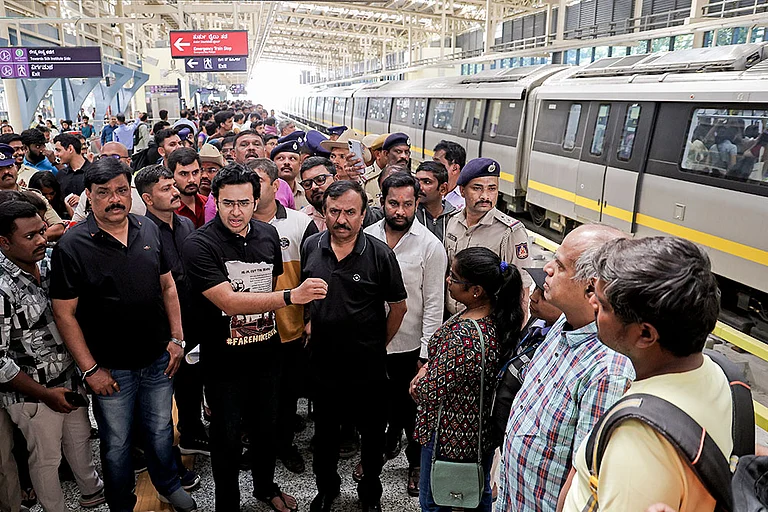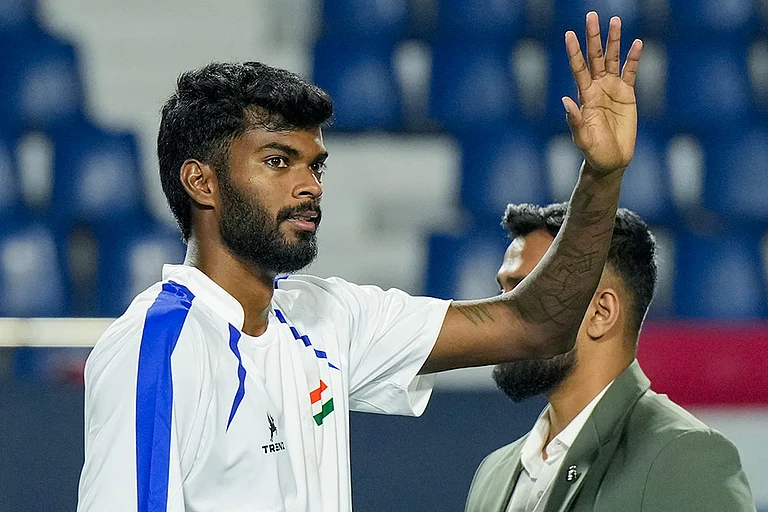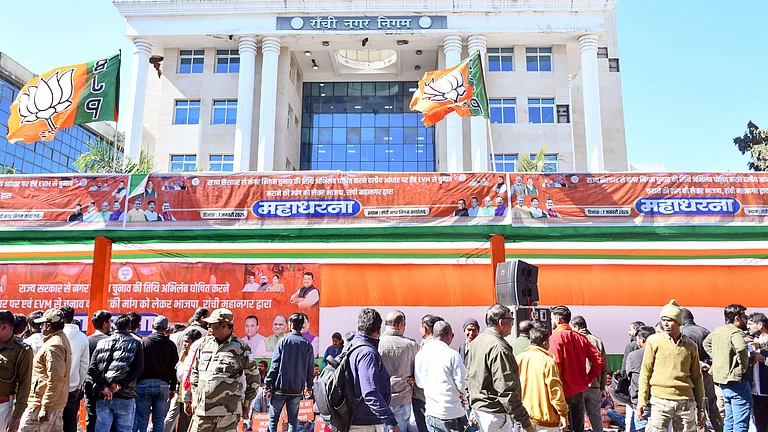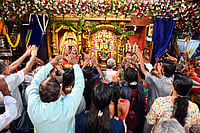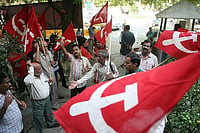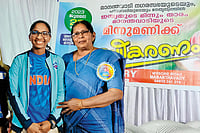
Middle-class residents call the survey’s 60-question format intrusive, raising concerns about privacy and the relevance of personal financial data.
Opposition parties like the BJP frame the survey as a tool to divide Hindu society, while the High Court’s ruling on voluntary participation has slowed implementation.
With urban apathy, political opposition, and the Rs 420 crore cost, doubts are growing over whether the current caste survey will produce actionable data or meet the same fate as the scrapped 2015 exercise.
How are details like marital status or monthly EMI meant to influence state policy? These questions are among the 60 in the Karnataka government’s Social and Educational Survey, which seeks data to inform social justice policies. However, they have irked a significant section of Bengaluru’s urban population. Many residents find the questionnaire excessively intrusive and refuse to cooperate with enumerators. What was intended as a comprehensive data-gathering exercise has, in the city’s middle-class neighbourhoods, become a debate over privacy and the limits of state intervention.
The Siddaramaiah government’s attempt to elevate social justice measures, in line with the Congress party’s larger ideological thrust, is encountering significant headwinds. The caste survey, already politically sensitive due to sub-categorisation, has now provoked discontent among the urban middle classes, who see the detailed questionnaire as an unwarranted intrusion into their private lives.
Caste Survey: Political Opposition & Social Apathy
While the opposition BJP and several dominant caste groups have denounced the exercise, accusing the government of trying to divide Hindu society along caste lines, enumerators on the ground report a different challenge. In urban areas, residents are reluctant to cooperate and often refuse to share personal and financial details. The questionnaire has deepened mistrust, turning what was envisioned as a data-driven step toward social justice into a politically and socially fraught exercise.
Critics of the caste survey found their position unexpectedly strengthened on two occasions. First, when Deputy Chief Minister D.K. Shivakumar expressed doubts about the questionnaire's design and intent, and later, when the High Court observed that participation in the survey was voluntary. These developments emboldened the sceptics and exposed the government's lack of cohesion in navigating one of its most politically sensitive exercises.
Enumerators admit it takes around 30 to 45 minutes to complete the questionnaire—a time commitment many urban residents are unwilling to make. The lengthy process has become a source of irritation, even antagonism, among sections of Bengaluru’s middle-class population.
The survey, originally slated for completion on October 7, has now been extended to October 18 for the rest of the state and October 24 for Bengaluru. Yet, enumerators Outlook spoke with doubt they will meet even the revised deadlines.
Court Intervention
The process has slowed further after the High Court’s intervention on petitions filed by the Vokkaligara Sangha, the Akhila Karnataka Brahmana Mahasabha, and members of the Veerashaiva Lingayat Mahasabha. The petitioners have questioned the state’s authority to conduct a survey of this nature. In its interim observation, the court clarified that participation in the survey is voluntary and that enumerators must not persuade or pressure anyone who declines to take part. The order, while affirming individual choice, has weakened the administrative momentum of the exercise, further complicating what was already a politically delicate and logistically ambitious undertaking.
“The court order has prompted many people to desist from participating in the survey. The scepticism that several residents expressed at the very outset has now found a kind of logical justification in the ruling,” says an enumerator from Bengaluru.
Too Many Questions?
The caste survey questionnaire contains nearly 60 questions, which many residents say makes the process cumbersome and intrusive. “I can’t understand the logic behind asking about loan amounts, EMIs, and other personal financial details. How is this individual information going to help the government frame social policies? It feels like an intrusion into private life,” says Raveendran, a resident of Koramangala.
The Karnataka government states that collecting such granular financial and social data enables the development of more inclusive and targeted welfare schemes, aiming to ensure that aid reaches those most in need through informed policy decisions.
His sentiment is widely shared among the city’s middle-class residents. Enumerators admit that persuading people to complete the survey has become a herculean task in urban areas. “It is very difficult for us to even enter apartment complexes, as many resident associations are unwilling to let us in,” says a schoolteacher serving as an enumerator in one of Bengaluru’s bustling neighbourhoods.
Upper Caste Aversion to Caste Survey?
But some experts believe there is more to the ongoing resistance than meets the eye. According to K.N. Lingappa, a member of the H. Kantharaj Commission, which had earlier conducted the state’s Socio-Economic and Educational Survey, the upper-caste aversion to the current exercise is unmistakable. Speaking to Outlook, Lingappa noted that this resistance is particularly pronounced in urban centres. “In rural areas, the survey has already covered nearly 90 per cent of households. But in Bengaluru, opposition and indifference remain strong for a variety of reasons,” he said. Certain communities, such as the Brahmins, have been especially hesitant to cooperate. “Even when they do participate, they often mention only their religion while deliberately withholding details about their caste,” Lingappa added.
Though there is no empirical evidence to substantiate this claim, several others Outlook spoke to echoed the same apprehension. They argue that if sections of the population selectively withhold information, the purpose of the exercise—to generate comprehensive caste-based data for equitable policymaking—will be rendered meaningless.
The BJP has openly opposed the survey, branding it a political tool aimed at dividing Hindu society along caste lines. “The caste survey is being resisted by members of Lingayat and other dominant communities because they fear it will expose the deep-seated caste fault lines that persist within society,” says senior journalist B.S. Arun. “The Lingayat community itself is divided between those advocating for a distinct religious identity and those who see themselves as part of the broader Hindu fold. Many are reluctant to publicly acknowledge these internal distinctions.”
Sub-categorisation Remains Controversial
Several caste groups have urged the government not to proceed with sub-categorisation, fearing it could dilute their social and political influence. The 2015 Socio-Economic and Educational Survey found that the state’s two dominant caste groups, Lingayats and Vokkaligas, constituted 10.29 per cent and 11 per cent of the population, respectively. Those figures sparked a wider debate on representation in politics and administration, and on access to state benefits—one that continues to shape Karnataka’s social justice discourse today.
The 2015 survey, which cost Rs 165 crore, was scrapped without leading to policy action. Now, with rising urban indifference and political resistance, doubts persist over whether the current Rs 420 crore caste survey will result in meaningful outcomes.








